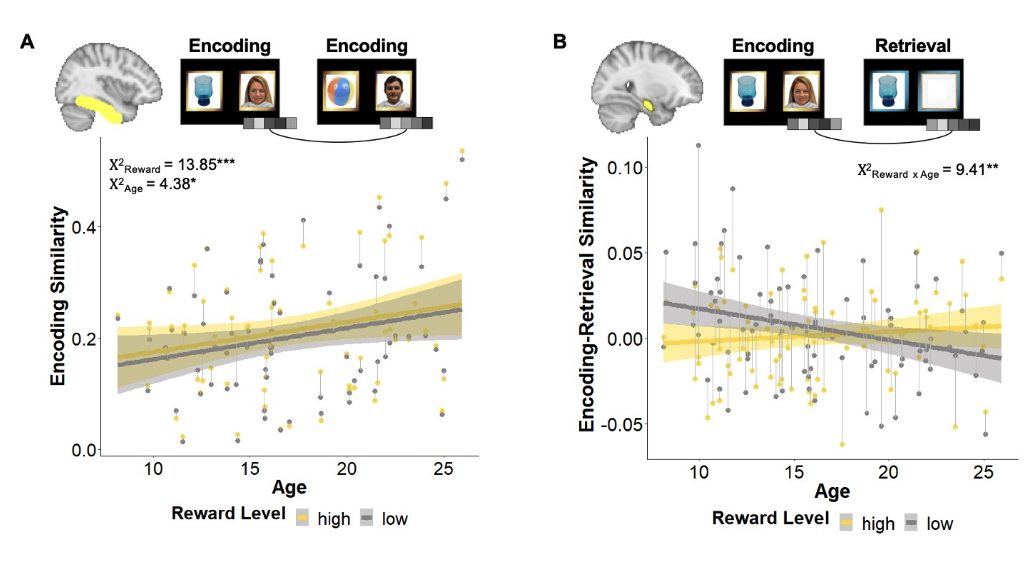Recent Research
In my current role as a postdoc in Catherine Hartley’s lab at NYU, my research focuses on how reinforcement learning and episodic memory are instantiated in real-world contexts across adolescent development. Lately, I’ve been particularly interested in the effects of reward and novelty on reinforcement learning and memory specificity, as well as how this changes across development. See below for a summary of a few recent projects, with links to posters/pre-prints for more information.

Exposure to novelty in the real world may improve autobiographical and episodic memory in teens and adults. In this ongoing project, we are investigating how novelty exposure in the real world influences memory in 12-25-year-olds using GPS tracking and text prompts on their smartphones linking them to tasks to complete 3 times weekly for 3 months. So far, we’ve found that participants have more positive memories for their own experiences on days higher in novelty, and that their memory for images in an experimental task is protected from forgetting over time if the image was learned on a day high in novelty (above). We also see that memory recall and mood are influenced by mental health. Benear et al., poster Aug. 2025

Positive valence biases in learning might benefit memory specificity after a delay. For this project, our goal was to extend prior work from our lab (Rosenbaum et al., 2022, eLife) demonstrating that valence biases in learning (i.e., overweighting unexpected negative or positive past outcomes when making choices) are reflected in analogous biases in memory by examining whether this same logic applies to specificity of memory, and how this changes over a delay. In 210 adults, rather than individual bias-aligned effects in memory, we found that participants with a more positively valenced learning bias (i.e., asymmetry index) had more specific memory for images from the learning phase, but only after a 24-hour delay (above). Benear, Harhen, et al., poster June 2025

Neural representational patterns supporting reward-motivated memory shift across adolescence. In this study, we examined how reward-associated memories are represented in the brain via pattern similarity analyses of fMRI data in 8-25-year-olds. We found evidence of reward information in neural patterns during encoding in VTC and in changes from encoding to retrieval in aHC in all participants (above). Adults’ memory benefitted from stability of aHC representations, while younger participants benefitted from representational drift and from reward-related activation in VTA. Our findings demonstrate that reward modulates neural memory representations, and these patterns change with age. Cohen, Benear, et al., JNeuro, pre-print
